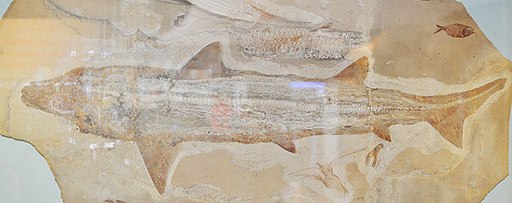The January meeting of the NHSM Fossil Club* welcomes JP Hodnett, Maryland National Capital Parks and Planning Commission Paleontologist, presenting on Paleozoic Chondrichthyans from the Grand Canyon and Mammoth Cave.
New and amazing discoveries of ancient shark fossils have recently been made at two of our nation’s iconic national parks, Mammoth Cave National Park in Kentucky and the Grand Canyon National Park in Arizona. These discoveries offer valuable information on the diversity of early cartilaginous fishes during the Late Paleozoic era. The sharks from Mammoth Cave represent the Late Mississippian period and the sharks from the Grand Canyon are from the Early Permian. Come learn about these wonderfully bizarre sharks as we compare and contrast these two assemblages but also the two very different field sites and collecting methods used between these two localities.
JP Hodnett is the paleontologist and program coordinator for the M-NCPPC Dinosaur Park and also works with the National Park Service’s Paleontology Program. JP Hodnett received his bachelor’s degree in biology at Northern Arizona University in Flagstaff and his master’s degree in biology at St. Joseph’s University in Philadelphia. His research interest includes the evolution and ecology of Paleozoic and Mesozoic chondrichthyans, the evolution and ecology of late Cenozoic mammalian carnivores, and trends in vertebrate faunal transitions. Some of his published works include the first record of a dire wolf from Sonora Mexico, a Late Miocene small saber-toothed cat from Northern Arizona, the first horned dinosaur from the Late Cretaceous of Arizona, and a number of new Late Paleozoic sharks from Arizona and New Mexico. Aside from his day-to-day field work in Prince Georges County, Maryland, JP has done field work in Sonora Mexico, Arizona, New Mexico, Nevada, Texas, and Kentucky.
* Natural History Society of Maryland’s Fossil Club is a group of novice and more experienced collectors will meet to exchange knowledge and help with fossil identification, discuss fossil locations, as well as other fossil related topics. Monthly meetings are held the first Wednesday of every month at the Natural History Society of Maryland. Due to COVID, NHSM is opening up this club meeting to all. Non-members are asked to donate $5. If you are a fossil enthusiast, please consider joining (https://www.marylandnature.org/club-membership/). The Natural History Society of Maryland is a volunteer-led non-profit organization, so the fee you pay will go directly to support the programs, the nature collections, and the building that make this kind of nature education possible.
You must register in advance to receive the Zoom meeting information. If you have questions related to the Fossil Club, please email Adrien apmalick@gmail.com.


